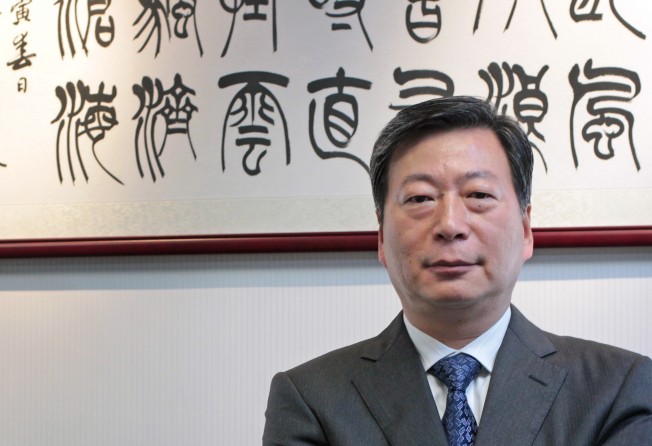Internet to help Chinese developers reduce burdensome inventories
Crowfunding reduces inventory pressure, Hangzhou-based developer says

The internet plus strategy can help Chinese developers minimise inventories in their ongoing transformation to serve personalised housing demand from the mainland’s younger generations, said Shi Kancheng, chairman of two property firms listed in Hong Kong.
China’s President Xi Jinping last month urged top economic officials to help ease property inventories, which hit a new record of 686.32 million square metres as of the end of October, more than eight times the size of Hong Kong Island.
Shi said selling down the existing stock would be a slow process, although policy support could help quicken the pace. He controls 69 per cent of Hangzhou-based residential property developer Zhong An Real Estate and 52 per cent of the non-residential property firm China New City Commercial Development Ltd.
“Many factors resulted in the current high level of inventories. The main one is home buyers do not accept the unsold homes’ price performance ratio, which means they are not meeting real demand,” he told the South China Morning Post. “The only way is to cut price.”
But often times, moderate price cuts will not work while developers need to be careful that deep discounts do not lead to speculation about their cash flow problems and sour broader market expectations, he added.
His companies’ home base of Hangzhou is where China’s latest property market correction began in early 2014 when some local developers cut prices by about 20 per cent to boost sales.
While it’s hard to destock existing inventories, Shi said developers can use the internet to help minimise the build-up of new inventories.
For example, Zhong An sold 192 unbuilt flats in a couple of hours in July through a real estate crowdfunding website, just a few days after the company bought a land parcel in Hangzhou.
Home buyers, who paid 30 per cent deposit, were given the chance to tell Zhong An how big they want the flats to be, including the structure and interior.
That trial resulted in zero inventory and it means an inverted model from the past when developers decided everything by themselves before marketing the projects only to find that buyers want something else.
The past mass production of exactly the same homes is over, as basic housing demand in China has largely been satisfied and the younger generations are increasingly demanding personalised services.
Some may want a bigger sitting room, some may need an extra small study, while others would like to have a spacious kitchen, for the same unit size of 80 square metres, Shi said.
“Internet and big data will help developers better pin down what kinds of homes are wanted,” Shi said. “We will apply such a strategy in other projects.”
“In the future, each flat needs to be different,” Shi added. “Developers’ profit margin will fall and they must produce fewer inventories. Otherwise, their margin will become even thinner.”
In the C-Suite on P3, Shi shares how he is restructuring the developer into new businesses.